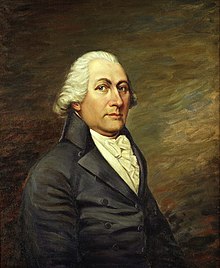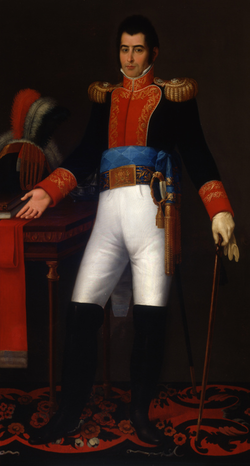Chapter 295
Chapter 295
February 1st, 1819
Manhattan
It would take more than eight weeks for the election results to be tabulated. Given the vast size of the nation and the communication lag from thousands of miles away from Manhattan would ensure that information would only filter into the capital in bits and pieces. Initially, those Provinces closest to Manhattan would give Daniel Webster the advantage as most of New England (including King's home Province of Massachusetts), New York and others. By December, the electoral votes (out of 160 in Congress) favored Webster 62 to 38. Only a narrow victory in Pennsylvania for King allowed him hope. Then, the remote "Latin" Provinces and the inland provinces of Mackinac, Seneca and others would turn the tide and King would win 92 electoral votes to 68.
On January 1st, 1819, the final results were in and Congress confirmed King as the President elect a month later on February 1st (after multiple recounts in provinces with close votes like Pennsylvania). King won 80,000 more of the popular vote as well, providing a mandate for King. Having expected a significant victory, Webster would give a falsely modest concession speech in Congress and proceed to plot his next election. He was still a young man and the future remained wide open.
King had already agreed to retain the services of John Quincy Adams as Secretary of State, though the latter had never been particularly eager for a life in public service. A cold and distant intellectual, Adams had been pressured into a public career by his domineering father (the former Prime Minister) and at the behest of several Presidents whom held his services in high regard.
Edward Livingston (Attorney General) and William Crawford (Secretary of War) both supported King's Presidency and the President-Elect would deeply desire to keep them on. President-Elect King and the allies he had inherited from Langdon would then canvas Congress to support Prime Legislator Philip Hamilton for another term as leader of Congress. Henry Clay, yet another rival, had vowed to regain this role in 1819's spring election.
Cartagena
"General" Jose Tomas Boves

In the Nueva Granadan port town of Cartagena, the radical Revolutionary Jose Tomas Boves would managed to breech the walls in less than a month. Having already seized much of eastern Granada, the shockingly rapid spread of the rebellion would take Spain by surprise. Most these regions had been sullenly docile in the last with America, not joining the Mayan Republic in rebellion...but also passive-aggressively refusing to assist the crown in any meaningful way. Most Spanish colonials still resented the fact that very little authority had been delegated to the native born Criollos and all real offices still reserved for Peninsulars.
Since the end of the war, Spain had largely stood down her military. In 1818, the nominal worldwide strength of King Louis III's Spanish and Portuguese armies reached perhaps 40,000 men, about half in Iberia and another half spread from New Spain to Chile to Brazil to Cuba. This seemed like a lot but the regiments were so spread out that they often did more to inflame colonial resentment than they stifled. The British Army in Boston prior to the American Revolutionary War was a similar example.
Only 2000 Spanish soldiers (including some locally raised troops of dubious loyalty) were scattered across a vast region of over a million square miles populated by over 4,000,000 souls.
Perhaps worse, the quality of the Spanish-Portuguese troops were the worst in Europe. It was not uncommon to find half-naked soldiers begging for food in the streets of Spanish cities outside their barracks. The colonial forces, if anything, were even worse off. Thus the mob of 10,000 of Boves' main army of conquest brushed aside the "regular" Spanish Army with ease and only the scattered resistance from the gentry slowed him down.
As typical, the Spanish Empire was slow to react. It would take over a year before forces could be consolidated from Brazil, Cuba and New Spain to attempt to retake Nueva Granada.
February 1st, 1819
Manhattan
It would take more than eight weeks for the election results to be tabulated. Given the vast size of the nation and the communication lag from thousands of miles away from Manhattan would ensure that information would only filter into the capital in bits and pieces. Initially, those Provinces closest to Manhattan would give Daniel Webster the advantage as most of New England (including King's home Province of Massachusetts), New York and others. By December, the electoral votes (out of 160 in Congress) favored Webster 62 to 38. Only a narrow victory in Pennsylvania for King allowed him hope. Then, the remote "Latin" Provinces and the inland provinces of Mackinac, Seneca and others would turn the tide and King would win 92 electoral votes to 68.
On January 1st, 1819, the final results were in and Congress confirmed King as the President elect a month later on February 1st (after multiple recounts in provinces with close votes like Pennsylvania). King won 80,000 more of the popular vote as well, providing a mandate for King. Having expected a significant victory, Webster would give a falsely modest concession speech in Congress and proceed to plot his next election. He was still a young man and the future remained wide open.
King had already agreed to retain the services of John Quincy Adams as Secretary of State, though the latter had never been particularly eager for a life in public service. A cold and distant intellectual, Adams had been pressured into a public career by his domineering father (the former Prime Minister) and at the behest of several Presidents whom held his services in high regard.
Edward Livingston (Attorney General) and William Crawford (Secretary of War) both supported King's Presidency and the President-Elect would deeply desire to keep them on. President-Elect King and the allies he had inherited from Langdon would then canvas Congress to support Prime Legislator Philip Hamilton for another term as leader of Congress. Henry Clay, yet another rival, had vowed to regain this role in 1819's spring election.
Cartagena
"General" Jose Tomas Boves

In the Nueva Granadan port town of Cartagena, the radical Revolutionary Jose Tomas Boves would managed to breech the walls in less than a month. Having already seized much of eastern Granada, the shockingly rapid spread of the rebellion would take Spain by surprise. Most these regions had been sullenly docile in the last with America, not joining the Mayan Republic in rebellion...but also passive-aggressively refusing to assist the crown in any meaningful way. Most Spanish colonials still resented the fact that very little authority had been delegated to the native born Criollos and all real offices still reserved for Peninsulars.
Since the end of the war, Spain had largely stood down her military. In 1818, the nominal worldwide strength of King Louis III's Spanish and Portuguese armies reached perhaps 40,000 men, about half in Iberia and another half spread from New Spain to Chile to Brazil to Cuba. This seemed like a lot but the regiments were so spread out that they often did more to inflame colonial resentment than they stifled. The British Army in Boston prior to the American Revolutionary War was a similar example.
Only 2000 Spanish soldiers (including some locally raised troops of dubious loyalty) were scattered across a vast region of over a million square miles populated by over 4,000,000 souls.
Perhaps worse, the quality of the Spanish-Portuguese troops were the worst in Europe. It was not uncommon to find half-naked soldiers begging for food in the streets of Spanish cities outside their barracks. The colonial forces, if anything, were even worse off. Thus the mob of 10,000 of Boves' main army of conquest brushed aside the "regular" Spanish Army with ease and only the scattered resistance from the gentry slowed him down.
As typical, the Spanish Empire was slow to react. It would take over a year before forces could be consolidated from Brazil, Cuba and New Spain to attempt to retake Nueva Granada.




